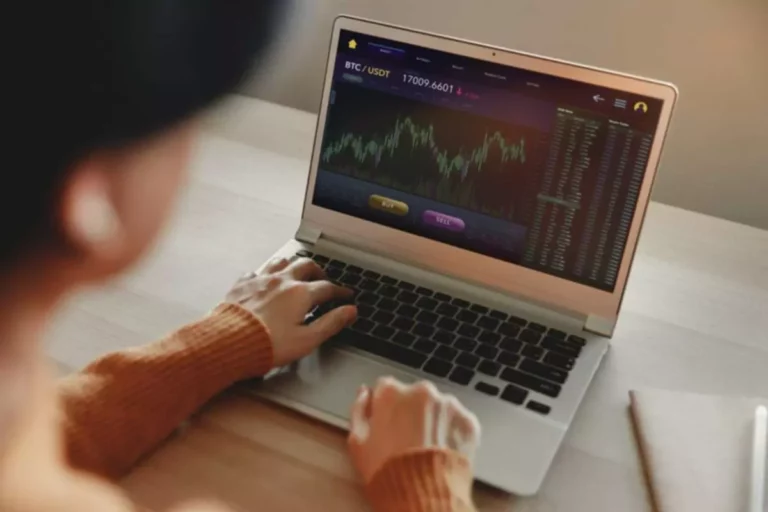Content
To buy a security on the OTC market, investors identify the specific security to purchase and the amount to invest. Most brokers that sell exchange-listed securities also sell OTC securities electronically on a online platform or via a telephone. Before we move on, it’s important to mention that there are some big Yield Farming differences between the OTC markets and the major exchanges like the NYSE and Nasdaq.
Would you prefer to work with a financial professional remotely or in-person?

There are reporting standards for OTC stocks, but those standards are not as stringent as listed stocks. Depending on the OTC market on which an OTC stock trades, more or less reporting may be required. Another positive sign for overnight trading’s future is the global scope of exchanges’ embrace of longer trading hours. In combination, the two platforms create an offering that is unique and powerful in its ability to meet a wide array of investor demands otc markets from retail and professional investors alike globally. For example, penny stocks are traded in the over-the-counter market, and are notorious for being highly risky and subject to scams and big losses.
- These companies must have audited financials and meet a minimum bid price of $0.01.
- Other factors, such as our own proprietary website rules and whether a product is offered in your area or at your self-selected credit score range, can also impact how and where products appear on this site.
- The absence of centralized systems and standardized processes increases the potential for operational disruptions, which can impact trade execution and settlement processes.
- OTC trading may also appeal to companies that were previously traded on an exchange but have since been delisted.
- Companies presented on OTC Markets Group are distinguished into four tiers according to the available information.
- Like other OTC markets, due diligence is needed to avoid fraud endemic to parts of this trading world.
With MOON ATS Launch, OTC Markets Group Lights the Way to Overnight Trading’s Bright Future
Over-the-counter (OTC) markets are stock exchanges where stocks that aren’t listed on major exchanges such https://www.xcritical.com/ as the New York Stock Exchange (NYSE) can be traded. The companies that issue these stocks choose to trade this way for a variety of reasons. The over-the-counter (OTC) market is a decentralized market where stocks, bonds, derivatives, currencies, and so on are traded directly between counterparties.
Trading on the Over-the-Counter (OTC) Market
Many, or all, of the products featured on this page are from our advertising partners who compensate us when you take certain actions on our website or click to take an action on their website. Get stock recommendations, portfolio guidance, and more from The Motley Fool’s premium services. Those are some of the key reasons that a company might file to list its stock over the counter. FINRA’s responsibilities include monitoring trading activities, enforcing compliance, and handling disputes. Broker-dealers must follow Rule 15c2-11 when initiating or resuming quotations in OTC securities, which includes submitting Form 211 to FINRA to demonstrate compliance. Someone on our team will connect you with a financial professional in our network holding the correct designation and expertise.
The middle tier is designed for companies that are still in the early to middle stages of growth and development. These companies must have audited financials and meet a minimum bid price of $0.01. They must also be up-to-date on current regulatory reporting requirements, and not be in bankruptcy. OTCQX is the first and highest tier, and is reserved for companies that provide the most detail to OTC Markets Group for listing. Companies listed here must be up-to-date with regard to regulatory disclosure requirements and maintain accurate financial records.

This is because there is no central clearing corporation to guarantee the performance of the contract, meaning that each party is exposed to the potential default of their counterparty. Traders also looked to the Pink Sheets, now known as OTC Markets Group, over a century ago as a paper-based system for trading unlisted securities. The term “Pink Sheets” derived from the pink-colored paper on which the bid and ask prices of these securities were printed and circulated. In the late 1990s, Pink Sheets transitioned to an electronic quotation system, eventually becoming the OTC Markets Group, which operates the OTCQX, OTCQB, and OTC Pink platforms.
If you want to trade on OTC Market, you can acquire stocks by using Otcmarkets.com, the core OTC trading platform. Finally, OTC Markets include several types of trading instruments that vary depending on the companies presented and the requirements for listing on OTCQX, OTCBX, Pink Sheets Market. The issue of trading on OTC Markets is not clearly defined, as it might be connected with some financial and business risks; however, it can be a good opportunity to invest in startup companies or in international businesses. Companies presented on OTC Markets Group are distinguished into four tiers according to the available information. These tiers are created for the investors to provide data about businesses and the amount of published information.
It also provides a real-time quotation service to market participants, known as OTC Link. Investing in OTC securities is possible through many online discount brokers, which typically provide access to OTC markets. However, it’s essential to note that not all brokers offer the same level of access or support for OTC investments. Some brokers may limit trading in certain OTC securities (such as “penny stocks”) or charge higher fees for these transactions. In the U.S., the majority of over-the-counter trading takes place on networks operated by OTC Markets Group. This company runs the largest OTC trading marketplace and quote system in the country (the other main one is the OTC Bulletin Board, or OTCBB).
In September 1999, the NQB introduced the real-time Electronic Quotation Service. In addition, companies traded OTC have fewer regulatory and reporting requirements, which can make it easier and less expensive when raising capital. Major markets are open 24 hours a day, five days a week, and a majority of the trading occurs in financial centers like Frankfurt, Hong Kong, London, New York, Paris, Sydney, Tokyo, and Zurich. This means the forex market begins in Tokyo and Hong Kong when U.S. trading ends.
Given that promising outlook, it’s hardly surprising that broker-dealers are racing to enter overnight trading or expand their offerings. As more firms do so, breadth of coverage will take on growing import as a key differentiator. Retail brokerages’ success in implementing all-hours trading through the platforms of early adopters like OTC Markets and Blue Ocean has encouraged firms catering to more advanced trading constituencies to follow suit.
OTC markets may also offer more flexibility in trading than traditional exchanges. Transactions can, in some cases, be customized to meet the specific needs of the parties involved, such as the size of the trade or the settlement terms. This flexibility can be particularly worthwhile for institutional investors or those trading large blocks of securities.
Illiquid or highly volatile instruments may witness wider bid-ask spreads, reflecting higher transaction costs and risk premiums. However, this market also entails certain risks, including counterparty and liquidity risks, underscoring the need for diligent risk management strategies. Earlier this month it announced plans to open a Singapore office in 2025 and acquire brokerage licenses in a bid to seize on potentially vast retail demand in the region. Finally, because of the highly speculative and higher risk backdrop of investing in OTC securities, it’s important to invest only an amount of money that you are comfortable losing.
Whatever the case, the company could sell its stock on the over-the-counter market instead, and it would be selling “unlisted stock” or OTC securities. Bonds, ADRs, and derivatives trade in the OTC marketplace, however, investors face greater risk when investing in speculative OTC securities. The filing requirements between listing platforms vary and business financials may be hard to locate. These can include small and micro-cap companies, large-cap American Depositary Receipts (ADRs), and foreign ordinaries (international stocks that are not available on U.S. exchanges). Companies that trade over the counter may report to the SEC, though not all of them do.
Mega Investments, a prominent investment firm, contacts brokers specializing in OTC securities. They inquire about the availability of Green Penny shares and receive quotes from different market makers. One market maker, OTC Securities Group, offers to sell 50,000 shares at $0.85 per share.
11 Financial may only transact business in those states in which it is registered, or qualifies for an exemption or exclusion from registration requirements. 11 Financial’s website is limited to the dissemination of general information pertaining to its advisory services, together with access to additional investment-related information, publications, and links. Participants in the OTC market are subject to various compliance requirements, including timely disclosure of financial information, adherence to fair trade practices, and the prevention of fraud and manipulative practices. A similar trend is likely to unfold with trading firms tapping into diverse data streams as they scour the overnight-trading landscape in search of profit-making pockets of illiquidity, volatility, and emergent retail activity.